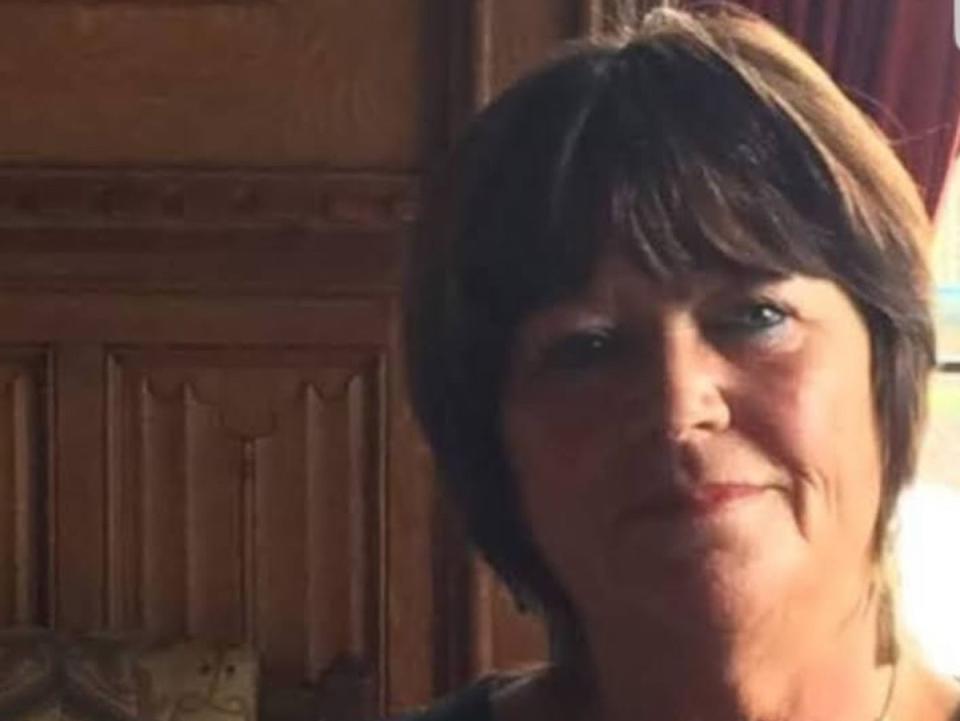‘End the misery’: Fears man who served more than 10 years for stealing mobile phone could be jailed again
In 2005, an 18-year-old Shaun Lloyd pushed someone to the floor and stole their mobile phone. After he was chased by the victim, he handed it back and apologised.
But almost 20 years later he could be hauled back to prison for the fourth time for the crime after he was handed a controversial indefinite jail term called an imprisonment for public protection (IPP) sentence.
When he was first jailed he was given a two-and-a-half-year sentence, but he has now served more than 10 years and has been recalled to prison three times under the cruel sentence because of a drug addiction.
Now his mum, IPP campaigner Shirley Debono, has revealed she fears for her son’s life if he is recalled yet again, begging the government: “Please end our misery.”
IPP sentences were scrapped in 2012, but not retrospectively, leaving almost 3,000 trapped in prison with no release date
More than 700 people have served more than 10 years longer than their minimum tariff
The sentences were found to be “fundamentally unjust” by the European Court of Human Rights
More than 80 prisoners are known to have taken their own lives – including seven self-inflicted deaths revealed by The Independent last year
The outlawed punishment means that even a small theft can leave a perpetrator serving a sentence normally reserved for violent criminals. Wayne Bell was jailed for a minimum of two years for taking a bike in 2007. He is still incarcerated after more than 16 years. Thomas White was jailed for a minimum of two years for stealing a mobile phone in 2012, but after more than 11 years in prison, he has still not been released.
The sentences, which have a minimum length but no release date, were scrapped in 2012 amid human rights concerns – two years before Mr Lloyd was first released after serving eight years for the robbery.
But his sentence was not over, and he has been hauled back to prison three times, in 2016, 2018 and again in 2020 – each time serving around a year more. Those sentenced under IPP are only released under a 99-year probation period, which also includes 10 years of strict demands.
While Mr Lloyd has been charged with no further offences, merely having an addiction is enough to send him back to prison, the very place where he picked up the dependency.

The ordeal faced by those given IPP sentences is highlighted by a landmark study that shows that more than half of such inmates are repeatedly hauled back inside, wrecking their mental health and increasing their risk of suicide.
Mr Lloyd’s mother, who co-founded campaign group IPP Committee in Action, has called for the government to end her family’s 18-year misery and carry out a resentencing exercise for IPP prisoners.
She told The Independent: “Please, please put us out of our misery and resentence them. We are living in hell. We are living under a black cloud. End the misery.
“My son he said he can’t do more prison time. He said if he’s recalled again ‘I am coming out in a bag ... I am not going to prison again for not committing a crime.’ So that’s frightening to think about. I just don’t want any more prison – it’s not fair and it’s not right.”
Her calls come as a nationwide survey of 111 people serving IPPs revealed that more than half have been recalled to prison more than once – with two-thirds claiming they received “poor” or “very poor” support upon their release.
The study, carried out by criminal justice charity User Voice, also found that more than half of those surveyed had been diagnosed or self-diagnosed as neurodiverse, while 39 per cent are living with a disability.
Three in four surveyed did not feel their most recent recall was fair, with some reporting that they were returned to jail based on “hearsay” without any evidence – or for simply missing a probation appointment.
Meanwhile almost 90 per cent said recall had had a devastating impact on them and their families – with many reporting symptoms of mental health deterioration, including insomnia, anxiety, depression, and in some cases self-harm or suicidal thoughts.
For Ms Debono, from Cardiff, the toll of her son’s sentence and repeated recalls has been severe as she has struggled with stress.
“Every few years, Shaun is recalled back to prison, just as he gets to the two-year point,” she said. “It’s costing £40,000 a year to keep one prisoner when they could go to rehab and get themselves clean and have all the aftercare and help for that money.
“He most recently came out in October – it’s hard because he’s walking on eggshells. We are worried he will relapse and he will be recalled.”

In 2022, parliament’s cross-party justice committee urged the government to carry out a resentencing exercise – but the government has so far refused, despite soaring rates of suicide and self-harm among IPP prisoners.
However, justice secretary Alex Chalk last year pledged to replace the lengthy 10-year licence conditions with a Parole Board licence review after just three years. Even if the board decides not to terminate the licence, it will automatically expire after a further two years, as long as the offender is not recalled to prison.
But for Ms Debono, the reforms do not go far enough. She added: “It’s got to be resentencing – end of. Resentencing is the only thing that’s going to solve this problem. Anything below that is not working.
“It’s not going to help Shaun, because he’s recalled every two years. It isn’t going to help Shaun, and it isn’t going to help those who have never been released.
“Why are they recalling people who haven’t committed a crime? They are putting people back in prison and they are coming out worse, with worse mental health.”
Simon Boddis, the chief executive of User Voice, said their survey had found individuals languishing in lengthy sentences, their mental health deteriorating, with little obvious hope of getting their lives back on track.
“There is an almost universal view that IPP sentences are unfair, have been misused, and are counter to any form of natural justice,” he said.
“Our report highlights directly the effects on individuals, and sadly reflects a failure of the whole system to deal with a policy that even its architect has disowned,” he said, referring to former home secretary David Blunkett.
“To quote Lord Blunkett in his 2021 evidence to the justice committee: ‘I got this wrong.’ The failure and personal cost is highlighted in the voices of those serving such sentences, and an inability to grasp the issue is a stain on our justice system.”
A Ministry of Justice spokesperson added: “We have reduced the number of unreleased IPP prisoners by three-quarters since we scrapped the sentence in 2012, with a 12 per cent fall in the last year alone where the Parole Board deemed prisoners safe to release.
“We have also taken decisive action to curtail licence periods and continue to help those still in custody to progress towards release, including improving access to rehabilitation programmes and mental health support.”

 Yahoo News
Yahoo News 
